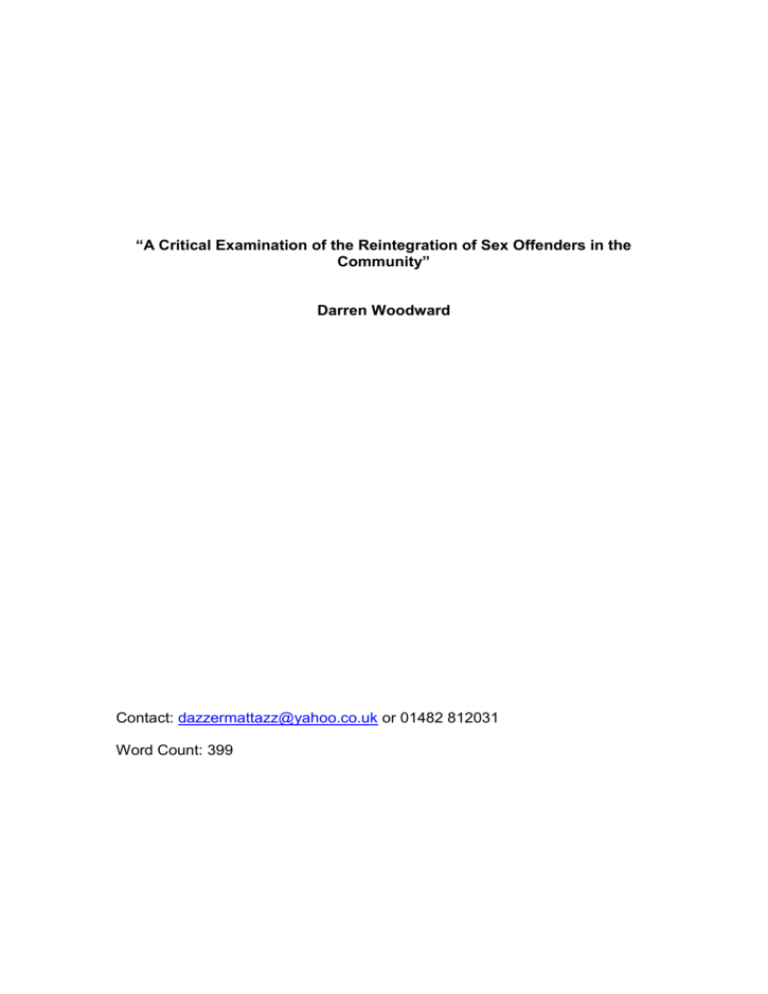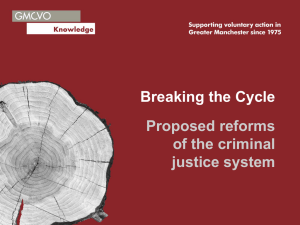“A Critical Examination of the Reintegration of Sex Offenders in the
advertisement

“A Critical Examination of the Reintegration of Sex Offenders in the Community” Darren Woodward Contact: dazzermattazz@yahoo.co.uk or 01482 812031 Word Count: 399 A Critical Examination of the Reintegration of Sex Offenders in the Community Project Background This qualitative study takes its theoretical underpinning from the study of the reintegration and desistance of offenders. Research into desistance aims to establish how and why criminals move away from crime and how they ultimately stop offending. Theories describing this process have centred on offenders who generally commit ‘street’ crimes, such as burglary, theft and robbery; there has been very little discussion on sex offenders. The cumulative theories have established how ontogenic factors, sociogenic factors and human agency can account for a reduction and ultimate cessation in crime. It is only very recently that an attempt to theorise desistance in sex offenders has happened (Laws and Ward, 2011) and only a handful of qualitative studies have been conducted to try and explain why sex offenders desist (Farmer, Beech and Ward, 2013; Harris, 2014). No UK based studies have been reported which focus solely on sex offenders. This project wants to expand upon the research of Farmer Beech and Ward and include a cohort of UK offenders who have current sex offences, with a larger sample base. Purpose of the Project The purpose of this project is simple, it aims to demonstrate an understanding of how sex offenders cope with reintegration into society, how they cope with stigma (especially how they internalise this stigma), what the effects of risk management procedures are and how this relates to helping (or hindering) them to desist from further criminal behaviour. It is believed that desistance will be promoted if the offenders reintegration into the community is smooth, productive, managed well and without harmful stigma. Methodology To achieve its aims, this project will adopt a qualitative stance and it is hoped that about 15 sex offenders, currently under probation supervision, will be interviewed; using a narrative approach, the project will allow an often berated and marginalized voice to be heard. To help with the examination of these 2 A Critical Examination of the Reintegration of Sex Offenders in the Community experiences, the researcher will also interview professionals who work with sex offenders in the community; again using qualitative techniques in a semi structured format. The sex offenders will all be men, aged 21 or over, have current sex offences and at least one previous sex offence. They must admit their offences and will be invited to participate, through their probation officers. The data will be collected on Dictaphone, transcribed and with the use of a grounded theory approach; common themes will be established and discussed. 3









